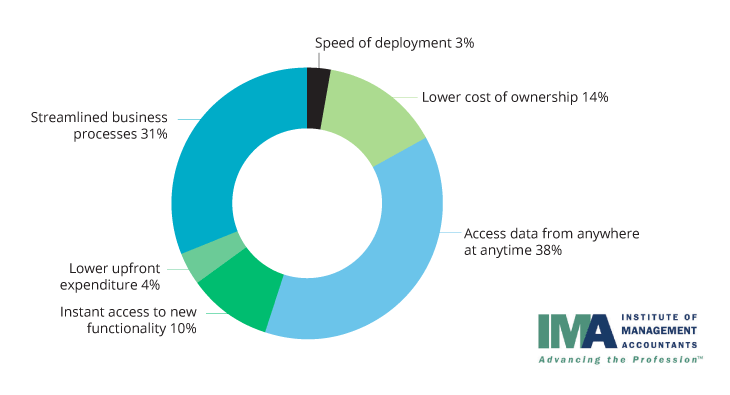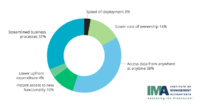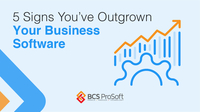Pivot Your Business
A businessperson in 1950 could enjoy an entire career with essentially the same skill set and knowledge base. Since 1970 the pace of technological advancement has accelerated twofold each year. In other words, technology that is in R&D right now or early production stages will likely be obsolete by the time it hits the shelves.
The iPhone 4 that was so cutting edge when it came out can’t even handle Pokémon Go let alone today’s iOS updates without sputtering to a stop. In this decade alone, someone who began their career operating on PCs and may now be using a mobile device to accomplish their day-to-day tasks.
A Wake Up Call
This rapid acceleration in technology has not only changed our personal lives for the better, but it has absolutely transformed the way we operate our businesses. We’ve experienced tremendous growth ever since business systems and the internet became mainstream in the late 80s and early 90s. Technological advancement and globalization has made the world a much smaller place by allowing global or even national competitors — who used to seem so far away — to come knocking on your door step.
Technology continues to evolve leaving businesses who are unable to modernize at risk of failure. In fact, a study by Boston Consulting Group found that one-in-three businesses will no longer be operational in five years.
“We’ve seen phenomenal growth in our business and, as we look to expand and transform the food delivery experience, we know NetSuite’s global capabilities will allow us to quickly and easily expand into new countries and take advantage of the ever increasing demand for food delivery services.”
– Emma Whibley, Finance Director, Deliveroo
The Implications of Change
For a business operating in this rapidly changing environment, adapting to new circumstances is critical for longevity. Failing to adapt does not mean instant solvency, of course. It means experiencing deteriorating performance and productivity that could require risky transformative initiatives.
That “cutting-edge” business system you purchased back in 1999 might not be so sharp as it was almost twenty years ago!
The Quick or the Dead
While there are numerous opportunities for all businesses, separating winners from losers comes down to having a STRONG VISION. Accomplishing this requires a game plan you establish for your company, systems to execute the plan, and the ability and will to pivot when required. A vision must encompass all aspects of your business, from your products or services, and how you meet customer needs, to the technology platform that makes it all possible.
A company’s financial and business management choices profoundly affect its future growth. The question every executive and every employee must begin asking is this:
“Is my business equipped with technology that enables us to move fast and accelerate growth?”
Take for example a 10-person startup business searching for a software solution to manage its financials. Turning to QuickBooks initially is perfectly reasonable. It offers a small company the basic functionality required while allowing room for growth. However, as growth accelerates and financial processes become increasingly complex, the company will be forced to deploy standalone applications and customizing spreadsheets to keep track of everything. It will not be long before these non-integrated processes and ad-hoc applications begin to impact performance and hinder productivity. There is a better way.
An important development for modern businesses is that cloud computing has come of age. Evidence of this from independent sources is virtually everywhere:
- Spending on cloud computing infrastructure and platforms will grow at a 30% CAGR from 2013 through 2018 compared with 5% growth for the overall enterprise IT (Goldman Sachs).
- By 2016, there will be an 11% shift of IT budget away from traditional in-house IT delivery, toward various versions of cloud computing as a new delivery model (IDC).
- By 2018, more than 60% of enterprises will have at least half of their infrastructure on cloud-based platforms (Saugatuck Technology).
There are clearly some very significant advantages to a cloud platform:
- Quick and affordable deployment
- Ability to scale in support of future growth
- Ease of administration and management
- Highly flexible with built-in intelligence
- Unified view across the business

How Can We Help You Achieve Your Vision?
BCS ProSoft is a leading provider of ERP, CRM, HRMS and document management software solutions and as well as professional services in implementation, strategy, consulting, project management, staffing, and operations. Combining years of experience and specialized skills across the A&E, Distribution, Healthcare, Manufacturing, Professional Services, and Rental industries – BCS ProSoft works at the intersection of people, processes and technology to help clients improve performance and create sustainable value for their stakeholders. Headquartered in San Antonio, TX and regional offices in Houston, Denver, and Honolulu, we help more than 1,500 clients improve the way they manage their business.








